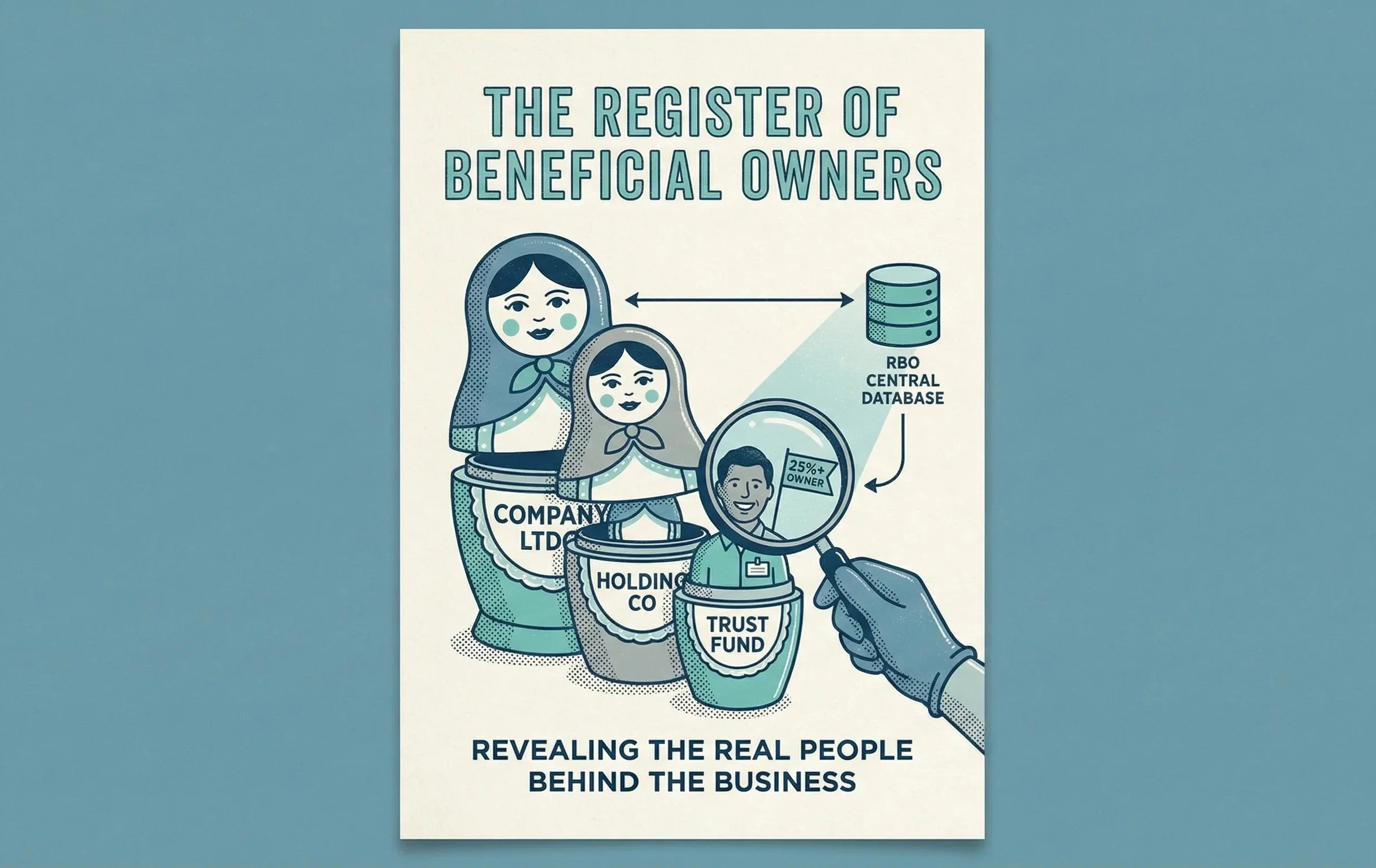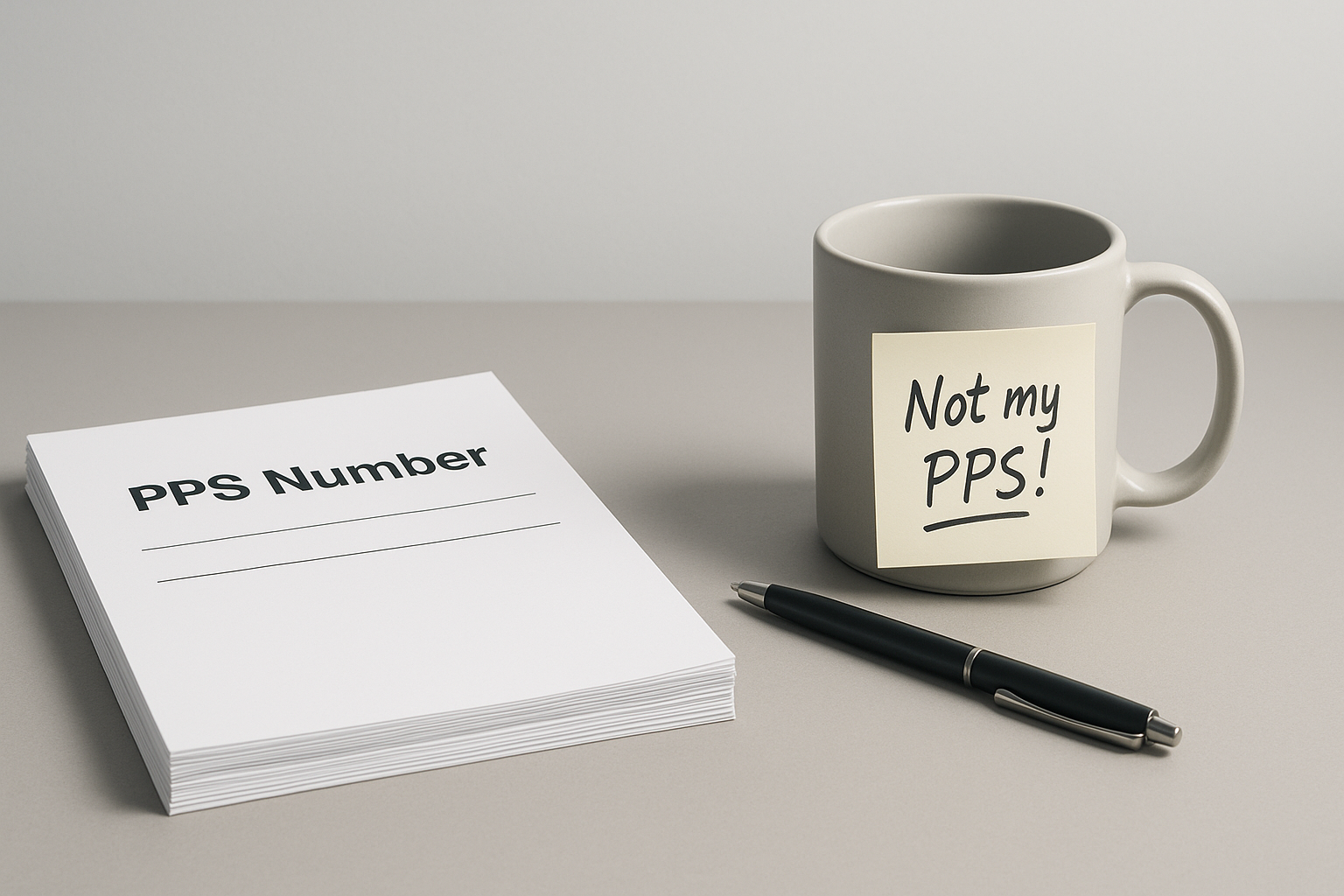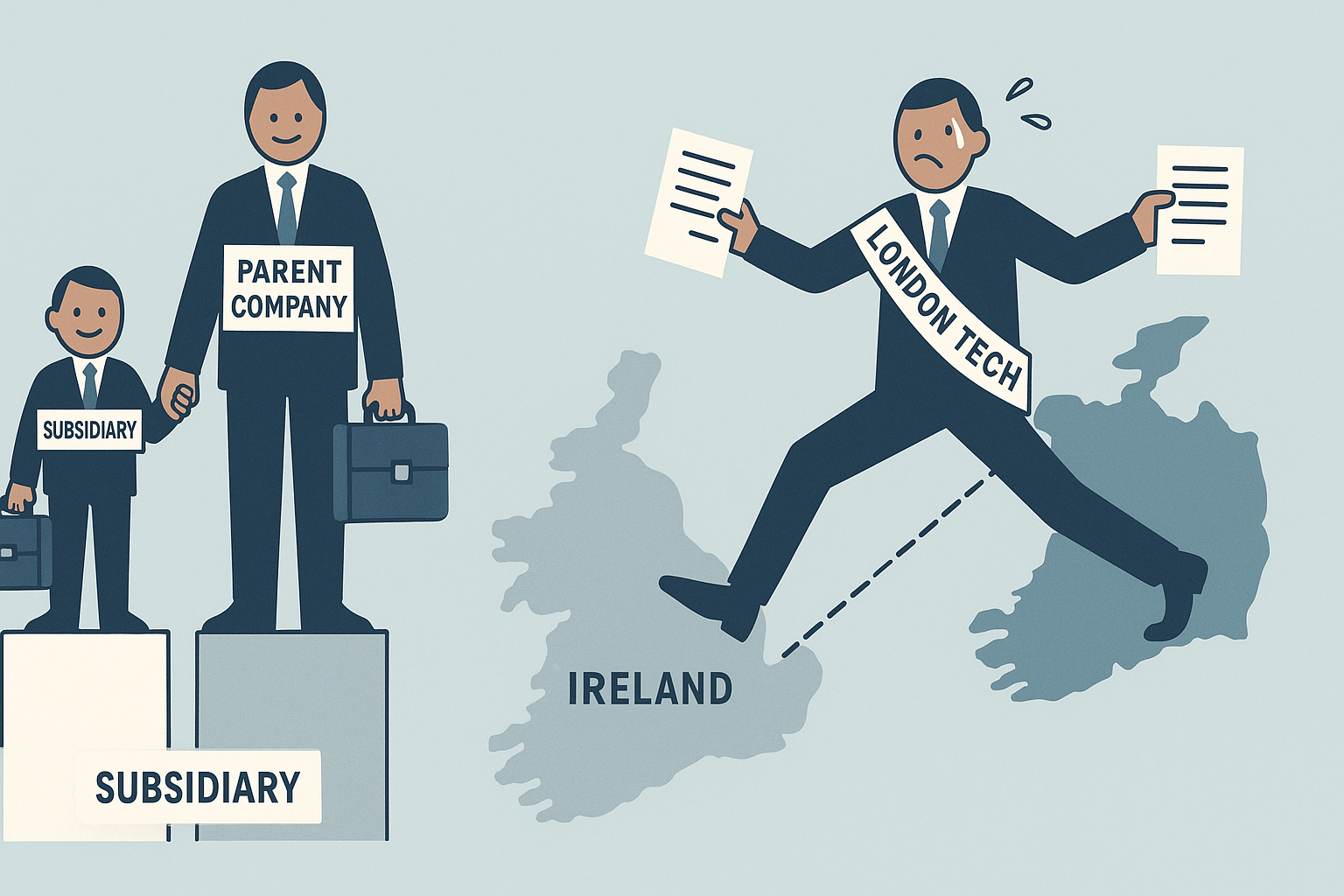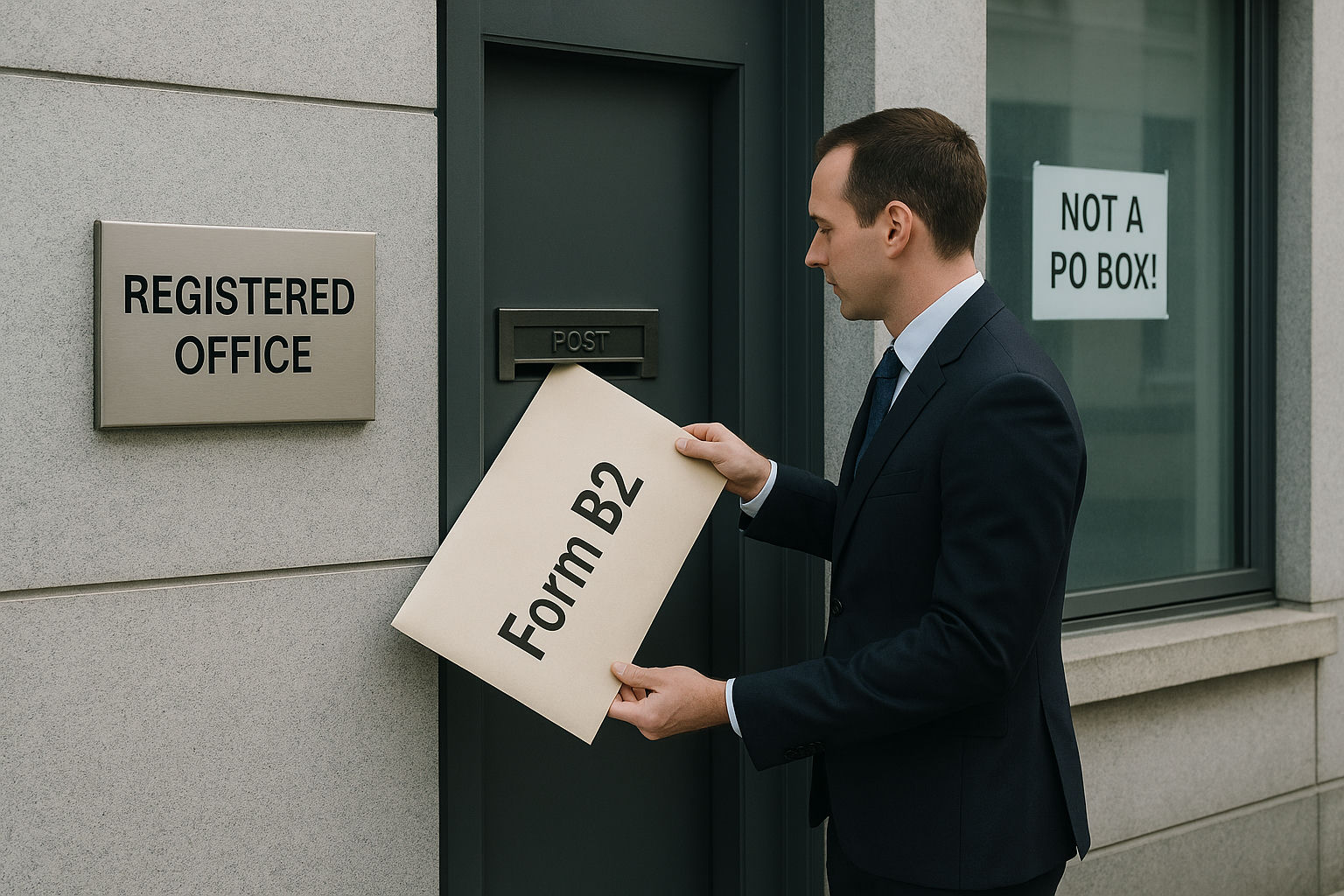Business owners and entrepreneurs looking to establish a professional services company in Ireland will find this comprehensive guide invaluable.
If you are still unsure whether a company is right for you or whether being a sole trader is the right structure - see our guide.
Once you are happy that a limited company suits your needs, read on!
Key Takeaways:
- Ireland's competitive corporate tax rate and business-friendly environment make it an ideal location for establishing a professional services company
- Compliance requirements include having an EEA-resident director, company secretary, and Irish registered office
- Essential industry-specific contracts and agreements are vital for protecting your services business and managing client relationships

What is a Professional Services Company?
The entrepreneurial spirit often comes with that unmistakable urge to forge your own path. If you're reading this, you've likely felt that drive to establish your own business.
You probably have some kind of particular skill or previous experience and now you are thinking about going out on your own but it's the wild-west out there - especially when it comes to company compliance requirements.
While most guides offer generic company formation advice, we understand that service-based businesses have unique needs and considerations.

Professional services companies differ from tech, traditional retail or manufacturing businesses.
Services companies primarily sell domain expertise, knowledge, and specialised skills rather than tech or physical products.
Setting up a Services Company

The first step is to distinguish between two types of service-based businesses.
A personal service company typically serves as a vehicle for someone individual to provide their services, often operating as a contractor or freelancer.
On the other hand, there are also growth-oriented professional services companies – businesses planning to:
- Hire employees and build teams
- Potentially seek external investment
- Establish multiple office locations
- Scale operations beyond a single service provider
- Partner with other professionals in the field
Benefits of Incorporating in Ireland
If you are thinking about registering your professional services company, it's likely that you are operating in Ireland and have some kind of Irish connection and so are not exactly shopping around other possible possible locations for your company, but it's still good for you to know that Ireland happens to be a really great place to set up a company.
Companies themselves are like products, and Ireland Inc. happens to have a good product for sale!
If you are reading from outside of the EEA, once you finish this article, you should read our article specifically for non-residents.
Ireland's corporate tax rate of 12.5% on trading income stands as one of Europe's most competitive rates. Additionally, you can effectively manage your tax liability through various business expense deductions, including:
- Office rent and utilities
- Professional memberships and certifications
- Employee salaries and benefits
- Technology and equipment costs
- Marketing and advertising expenses
- Professional insurance
- Training and development programs
- Travel expenses related to client meetings
The Limited Company Structure
A limited company structure provides the most robust foundation for a professional services business.
This format offers personal asset protection, separating your business liabilities from your personal finances.
It also presents a more professional image to clients and makes it easier to raise capital or bring in new shareholders as your business grows.
Share Capital Considerations

While the concept of share capital might seem complex, it's essentially about how ownership of your company is divided.
Your authorised share capital represents the maximum number of shares your company can issue.
Many service companies incorporate with 100 or 1,000 shares, which might be suitable for smaller operations or professional services companies in some circumstances. However, consider your future plans:
- Will you bring in partners?
- Might you offer equity to key employees?
- Do you plan to seek external investment?
If you answered yes to any of these questions, you might want to structure your company with a higher number of shares to provide flexibility for future growth. If in doubt, go high on the shares - there are zero material downsides.
Don't worry if this seems overwhelming – we can help you make the right choice for your situation. Open Forest can guide you through these decisions.
Legal Requirements and Compliance

When you take the plunge, your services company must meet a couple of key requirements:
- It needs at least one EEA-resident director (exceptions apply)
- It needs to appoint a company secretary (who cannot be the sole director)
- It needs an Irish registered office address
- Registration with the Companies Registration Office (CRO)
Once your services company has been registered, you'll need to:
- Register for corporation tax
- Register for VAT if your turnover exceeds €42,500 (2025 threshold)
- File annual returns
- Submit details to the RBO within five months of incorporation
- Maintain proper company records and minutes
Industry-Specific Contracts and Agreements

While the basic company structure remains consistent for almost all companies, professional services companies will need industry-specific contracts to protect their interests and manage client relationships effectively.
These might include:
- Service level agreements (SLAs)
- Software Development Agreements
- Supply of Goods or Services Agreements
- Consulting contracts
- Non-disclosure agreements
- Intellectual property agreements
- Client engagement letters
Each type of service business requires its own bespoke agreements.
For example, a marketing agency needs content creation and campaign management agreements, while an IT consultancy requires software development and maintenance contracts.
Open Forest has a huge repository of well established legal agreements (not AI created junk!). We can help you find whatever you need.
Next Steps
Setting up a professional services company in Ireland doesn't have to be complicated. While there are various considerations and requirements, working with a professional company formation service like Open Forest will take away any pain points or risk.
We can help you make informed decisions about share structure, handle the registration process, and ensure you meet all compliance requirements - and for a ridiculously cheap price!
How Can Open Forest Help?
Open Forest offers the cheapest and fastest incorporation packages in Ireland including holding companies for €99 including CRO fees and access to the Open Forest platform so you can keep track of all of your legal, tax and accounting obligations - at no additional cost.
Choose from one of our incorporation packages here and we will take care of the rest.

Stuart Connolly is a corporate barrister in Ireland and the UK since 2012.
He spent over a decade at Ireland's top law firms including Arthur Cox & William Fry.





.webp)
.webp)
.webp)





